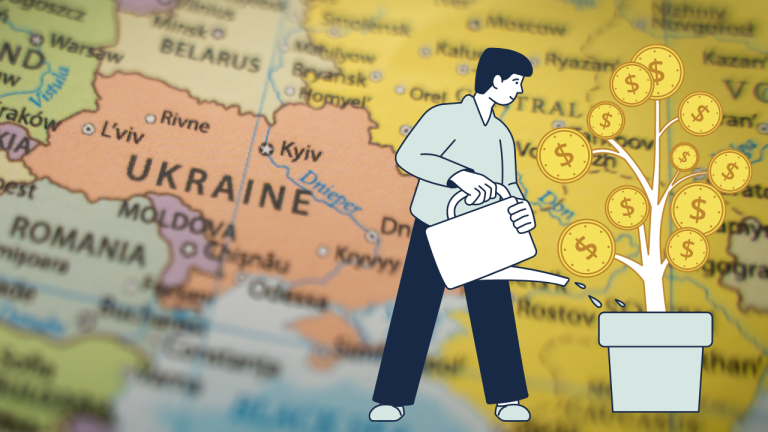Teenagers working
Unemployment has not been a problem in Poland for a long time – mainly due to demographic issues such as low birth rates and an aging population, but also due to the rapidly growing economy, which now employs a record number of people – more than 17 million.
Today, with regard to the labor market, issues such as the form of employment, the level of wages, or their size are the subject of discussion – there are even proposals to shorten the work week or establish a basic income. The subject of taking up gainful employment before the age of 18 also remains controversial. Piotr Wojcik, in the pages of Krytyka Polityczna, suggests that teenage work is even a “grim idea,” while Prof. Baha Kalinowska-Sufinowicz, in an interview with Onet.pl, argues that it is “a fantastic idea, as long as it does not interfere with education.”
On the occasion of Children’s Day, the Warsaw Enterprise Institute decided to investigate what Poles’ experience of working as teenagers is like in practice. Is this a common phenomenon, or is it marginal?
It seems that acquiring work experience before “18” is extremely popular in Poland, which – seemingly – is at odds with Eurostat data, which shows that between the ages of 15 and 19 only about 4-5 percent of people in Poland find employment. Seemingly, because we’re talking about full-time and legal (full-time) employment, meanwhile the survey, commissioned by WEI, shows that young Poles work primarily in the shadow economy, i.e. without any formal contract. This is declared by as many as 70 percent of respondents with experience of working before the age of 18.If an adolescent gets any kind of contract, it’s usually a commission or a job.
Of course, teenage labor or, more generally, child labor can be judged differently. Certainly, 19th-century standards, which permitted the employment of several-year-olds in dirty and dangerous industries, would be unacceptable today.Today, we allow child labor if it is voluntary and serves their development. We would also like it not to be an expression of desperation caused by a difficult life situation, but rather to build in children the ethos of responsibility and discipline needed to achieve important life goals in adulthood.
On the other hand, if teenage work is thoughtful, has a clear goal and does not result in the abandonment of education, there are tangible benefits. These are confirmed, for example, by the research of Dr. Christopher Ruhm and Dr. Charles Baum. The researchers observed that “for young adults attending high school at the turn of the millennium, 20 hours per week of part-time work in the high school graduating class resulted in annual earnings 20 percent higher for 6-9 years after graduation compared to peers who did not work.” What’s more, the effect of higher wages and lower unemployment persists for the group of people with early earnings experience, even once they get past age 50. These are not the only papers whose authors have reached similar conclusions. According to the collective paper Pathways to High-Quality Jobs for Young Adults, “having a job as a teenager (between the ages of 16 and 18) predicts higher job quality in adulthood, as do higher earnings at age 23.”
WEI’s research shows that today it is not the difficult life situation that is the reason for teenagers in Poland to take up employment.The youngest respondents (the 18-24 group) in as much as 81 percent indicate the desire to earn money for their own expenses and pleasures as the main motive for taking up employment before they came of age, while only 12 percent mention financial troubles.Their older counterparts in the 25-34 age group indicated trouble a tad more often (22 percent), and this was most often done by those in the 35-44 age bracket, who had entered the casual labor market since the mid-1990s, a period of high unemployment.This shows quite unambiguously the general improvement in the well-being of Polish society, but also dispels the myth according to which the youngest generations are “lazy” and “don’t want anything.”
The percentage of minors working casually has been about the same over the past 30 years, at around 50 percent.- With one exception, which is people between the ages of 25 and 34. In their case it has dropped to 40 percent. It is difficult to come up with a clear explanation here, but one can speculate that this age range covers the years of first the global financial crisis and then the European debt crisis, which created uncertainty in global markets and disrupted the economy. People were more prone to defeatism, which may have discouraged them from seeking temporary employment in their teens. However, this is speculation, and the problem would need to be subjected to additional research.
While teenage labor remains a debatable issue among intellectuals and researchers, a positive view of it prevails among the general public. 61 percent of Poles believe that “the earlier a child gains experience with gainful employment, the easier it will be in later life,” while maintaining a sober judgment that “possible gainful employment for minors should be well suited to their stage of development” (76 percent). Interestingly, a more positive attitude toward underage labor is shown by those who have had such experience themselves.
It is worth noting that the employment of minors in the shadow economy from a fiscal point of view is of little importance, since working legally they would be exempt from taxes and contributions anyway. Nevertheless, from the point of view of legal culture and security, it is a serious matter.
A person working in the shadow economy, for example, cannot get insurance against accidents in the workplace. The problem here may be the excessive bureaucracy and over-regulation associated with underage employment, thus discouraging its formalization. This may be indicated, for example, by the case of a 16-year-old from Lubno who sold cherries from her grandfather’s garden, for which the Sanitary Inspectorate issued her father a fine of PLN 100. This was because she did not have the proper medical tests necessary to sell such products. In the end, Sanepid withdrew from the fine, recognizing that it was “a measure disproportionate to the offense,” but the distaste remained – it looked like the state wanted to punish the girl for her resourcefulness and diligence.
It is therefore worthwhile for the legislature to review the regulations and eliminate those that discourage teenage Poles and their employers from officially registering.
When can a child work in Poland?
The lowest age at which a minor can legally work is 13 in Poland. However, workers between the ages of 13 and 15 can only be employed in the artistic, cultural, sports or advertising industries. After turning 18, these restrictions no longer apply. As for the employment contract (full-time), on the other hand, it can already be entered into by people who are at least 15 years old. (the lower age limit was lowered from 16 on September 1, 2018). However, they can only work under certain conditions. A person over the age of 15 can be employed if:
- completed at least eight years of elementary school,
- has presented a medical certificate confirming that the work does not endanger his health,
- the employment is for the purpose of vocational training.
We live in a world of great challenges for the labor market. It is undergoing great transformations under the influence of both demographic and technological phenomena. Who works – and how they can work and what kind of productivity they will achieve – is one of the most crucial development issues for Poland. Poland’s institutions should foster both entrepreneurship and enable the widest possible participation in the labor market, eliminating barriers and ensuring compliance with the law.





